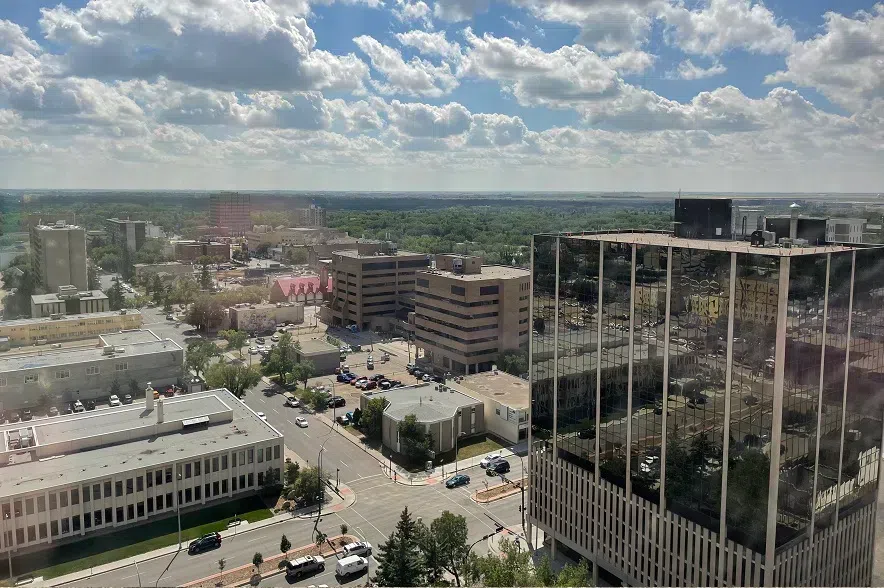The group that brought a court challenge against the redrawn Regina ward boundaries has voiced their displeasure at the decision.
Engaged Neighbours United for Fairness in Regina Advocacy Association Inc. (ENUF!) said in a news release Tuesday that “while we respect the court’s deliberation, the upshot is that the concerns of inner city Regina residents are going to be considerably weakened at City Hall.”
“Residents who hold common concerns have been split up and reduced to minority voices in their new wards,” said ENUF!
The group is responding to a ruling in King’s Bench court from Justice Richard Elson on Monday, July 22, 2024. In his decision, Elson dismissed the challenge against the City of Regina and the city’s Municipal Wards Commission.
Justice Elson stated he found “no merit in any aspect of this application.” He stated the challenge “is not supported by the governing standard of review principles that apply. As for the challenge of the City’s decision to regard the Report as filed, I simply find no basis, in fact, or law, to support this challenge.”
Dr. Patricia Elliott was part of the group that brought the court application. She expressed her concerns that inner-city neighbourhoods are essentially being split up by the new boundaries
Before, she said, inner-city neighbourhoods had been represented by two wards, referring to Wards 3 and 6.
But now “they’ve been kind of split off. So North Central for example is part of Westerra neighbourhood now. Centre Square is part of a ward that goes all the way down to the University. Cathedral has been put into a south Regina ward,” explained Elliott.
Elliott said, “This really makes these neighbourhoods kind of minority voices within their wards, whereas before they had a stronger voice to kind of collectively represent issues that matter for us as inner-city residents.”
Ward 3 has seen the most notable change. The new boundaries see the North Central and Cathedral neighborhoods split up, with Cathedral staying in Ward 3 while North Central moves to Ward 8. The new Ward 3 boundaries also push south to include Lakeview, which was part of Ward 1.
The legal challenge came about in the aftermath of the final report of the Municipal Wards Commission, a report that established the boundaries for the 2024 municipal election.
Their final report was presented to council on April 5, 2023. At that meeting, the council heard from several delegations expressing opposition to the new boundaries. As it turned out, several councillors expressed concerns as well.
The city council ended up voting against the receive-and-file of the report by a seven to four vote. Despite the result, the indication was that the Municipal Wards Commission had already filed its report and the election would be run on the new boundaries.
Not satisfied, the ENUF! group was formed and filed an application for judicial review on Dec. 11. Their grounds were that the Commission did not comply with the Act’s direction to consider any special diversity or community of interest of the inhabitants in specific areas of Regina; they also claimed the commission’s report was not properly filed with the City.
Following Monday’s court ruling to dismiss their application, Elliott said they respect the fact that the court has deliberated, “which is what we wanted.”
“There was very little clarity about what needs to happen after council rejected receiving and filing the report, so we were seeking that clarity.”
Elliott said the reason for ward boundaries in the first place is so communities who “share a common interest would have a voice at City Council, and we’ve now seen that voice weakened.”
She said priorities in the inner city, such as social housing, public transit, and lead in the drinking water, are “not priorities in the other parts of the city that we’ve been tacked on to.”
In a statement, ENUF! said that if nothing else, “systemic problems have been revealed, along with roads to improvement.”
They cited the need for “greater diversity of representation on ward boundaries commissions, with representatives who can offer community-based perspectives and advice on gathering community input.”
ENUF! also stated the “process of public consultation needs to be strengthened overall, including detailed, publicly available minutes of commission meetings, and more transparent accounts of how community input is integrated into decision-making.”
The group also states there should be earlier engagement for discussing potential configurations, instead of the public “being presented with a single option to comment on near the end of the review period, with limited avenues to do so.”
They also called for review and updating of the provincial legislation, saying the provisions on ward boundaries are unclear and afford very little discretion for municipalities to consider local conditions.
The ENUF! group adds the whole point of moving to a ward system “was to ensure neighbourhood-level concerns would no longer be disenfranchised. We should never lose sight of that foundational purpose, and return it to its central role.”
The new ward boundary changes will be in effect for this fall’s municipal election on Nov. 13.







